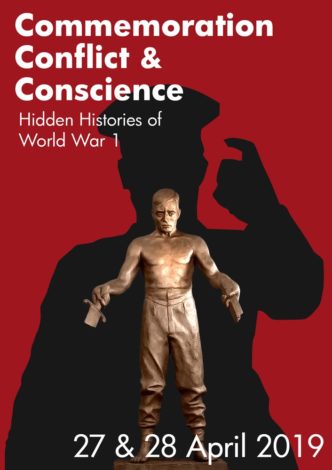Harbottle and Jonas
Songs from the WW1 Conscientious Objectors Songbook
For this project, David Harbottle (vocals, acoustic guitar and stomp box) and Freya Jonas (vocals, harmonium and concertina) have reimagined several songs from the WW1 Conscientious Objectors (COs) Songbook. Whilst the words of the songs remain untouched, the duo have composed new vocal melodies and musical arrangements for each piece, breathing new life into the songs but allowing the words to speak as they once did. David and Freya have recorded and pressed onto CD the three songs from the COs […]


